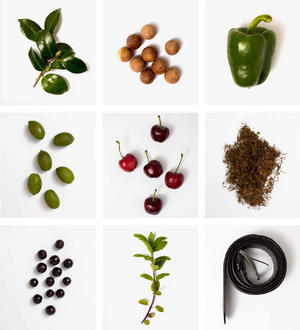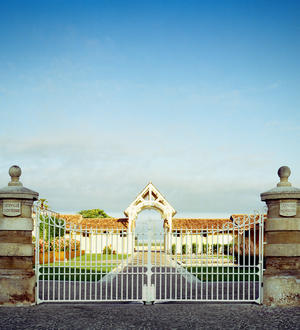2020 Château Léoville Poyferré, St Julien, Bordeaux
- Red
- Dry
- Full Bodied
- Cabernet Sauvignon (64%),Merlot (31%),Cabernet Franc (3%),Petit Verdot (2%)
Not ready
- Antonio Galloni
- 95-97/100
- Neal Martin MW
- 95-97/100
- Jeb Dunnuck
- 95-97+/100
- Jancis Robinson MW
- 17.5+/20
- Michael Schuster
- 94-95/100
- Lisa Perrotti-Brown MW
- 95-97/100
- James Suckling
- 96-97/100
- Jane Anson MW
- 96/100
Product: 20208002158
Description
Cabernet Sauvignon 64%, Merlot 31%, Cabernet Franc 3%, Petit Verdot 2%
This is the Cuvelier family’s 100th vintage as owners here and, unsurprisingly, it will come in a commemorative bottle. There is a lot to like, especially the tannins, which are evident from the start. They support the compote notes of intensely ripe red and black fruits with gravelly textures and graphite. The tannins are immense, but never disproportionate. The fruit wins through by sheer concentration of flavour. This is a very impressive, confident expression of the vintage.
Drink 2028-2048
Colour Red
Sweetness Dry
Vintage 2020
Alcohol % 13.5
Maturity Not ready
Grape List Cabernet Sauvignon (64%),Merlot (31%),Cabernet Franc (3%),Petit Verdot (2%)
Body Full Bodied
Producer Château Léoville Poyferré
Critics reviews
Antonio Galloni 95-97/100
The 2020 Léoville-Poyferré is a powerful, structured wine. In recent vintages, Léoville-Poyferré has been more opulent, but the 2020 shows off a towering, vertical build framed by a soaring spine of tannin. Dark red cherry, pomegranate, cedar and spicebox emerge with a bit of coaxing. Ultimately, though, Léoville-Poyferré is less showy than most Saint-Juliens at this stage. I don't expect that will be much of an issue in time. In a word: magnificent. Tasted three times. Drink from 2032 to 2050antonio_galloni, Vinous.com (June 2021)
Drink 2032 - 2050
Neal Martin MW 95-97/100
The 2020 Léoville Poyferré builds on the success of recent vintages, offering intense yet exquisitely defined black cherries, wild strawberry, cassis and crushed stone aromas. It is high-toned as usual but not quite as hedonistic as the recently tasted 2018. The palate is medium-bodied with supple tannins that belie the backbone of this Saint-Julien. Slightly lactic in texture toward the spicy finish; the oak will be assimilated by the time of bottling, leaving a very suave and sophisticated wine that will give 30–40 years of drinking pleasure. Easily one of the classiest offerings from this Saint-Julien in recent years. Drink from 2025 to 2055Neil Martin, Vinous.com (May 2021)
Drink 2032 - 2050
Jeb Dunnuck 95-97+/100
Cut from the same cloth as the 2016 with its focused, pure, yet concentrated style, the 2020 Château Léoville Poyferré reveals a dense purple color as well as ultra-classic notes of crème de cassis, graphite, toasted spice, and unsmoked tobacco. Rich and medium to full-bodied, it has brilliant mid-palate depth and ripe, velvety tannins, all making for a beautiful Saint-Julien that will benefit from 4-6 years of bottle age and shine for 30-40 years or more. Tasted three times.jeb_dunnuck, jebdunnuck.com (May 2021)
Drink 2032 - 2050
Jancis Robinson MW 17.5+/20
64% Cabernet Sauvignon, 31% Merlot, 3% Cabernet Franc, 2% Petit Verdot. Plot-by-plot fermentation and ageing for 18 to 20 months (still in train, as the notes explain). Here they admit they don't do the final assemblage until June. Dark crimson. Relatively voluptuous nose. Flattering initially but then with quite a charge of inky tannins underneath. Needs time. Notably dry on the finish but with good density. Rather more obviously dry and less flashy than some vintages. Very much made for the long term with a juicy, spicy undertow. Extremely youthful. Unusually, it seems drier than Léoville Barton.Drink 2030 - 2053jancis_robinson_mw MW, JancisRobinson.com (April 2021)
Drink 2032 - 2050
Michael Schuster 94-95/100
Inky; closed to smell, blackcurrant-tight; rich, elegantly “packed” wine, with a perfectly poised, freshly defining acidity and a superfine, velvety tannin, an overall effortlessly harmonious balance; ripe rather than “sweet, ” long, graceful, rich, but not heavy, taut, close-grained, freshly ripe blackcurrant and mineral in flavor, very long across the palate, with a wonderful finish of subtle ripe fruit fragrance and fine gravel aromas. Most complete, a real beauty.Drink 2030 - 2050Michael Schuster, The World of Fine Wine (May 2021)
Drink 2032 - 2050
Lisa Perrotti-Brown MW 95-97/100
Deep purple-black colored, the 2020 Léoville Poyferré comes bounding out of the glass like an energetic young pup, delivering exuberant scents of crushed black cherries, juicy blackberries and warm cassis, with hints of ground cloves, dark chocolate, lilacs and tilled soil. The medium to full-bodied palate is wonderfully plush, delivering bags of ripe black fruits with a seamless backbone of acidity, finishing long and spicy.Drink from 2027 to 2052Lisa Perrotti-Brown MW, Wine Advocate (May 2021)
Drink 2032 - 2050
James Suckling 96-97/100
Impressive purity of fruit on the nose with crushed raspberries, blackcurrants and blackberries. Some lead pencil, too. It’s full-bodied with very polished, intense tannins that go on for minutes. The quality and precision of the tannins are impressive, giving the wine form, energy and equilibrium.james_suckling (April 2021)
Drink 2032 - 2050
Jane Anson MW 96/100
Rich and concentrated with violet reflections and a wall of tannins. Well structured, it sets its feet deep in the ground and will need time to soften and develop. Good quality with depth. The tannins are far more present than the alcohol, setting it apart from the 2018. A yield of 35hl/ha. Harvest september 14 to 30. Planted blend (not 2020) 61% Cabernet Sauvignon, 27% Merlot, 8% Petit Verdot and 4% Cabernet Franc.Drink from 2028 to 2042jane_anson_mw, Decanter (April 2021)
Drink 2032 - 2050
About this wine

Cabernet Sauvignon
The most famous red wine grape in the world and one of the most widely planted.
Find out more

Château Léoville Poyferré
Château Léoville Poyferré is a wine estate in St Julien on the Left Bank of Bordeaux. It was once part a larger estate called Léoville, which was established in 1638 and divided up centuries later following the death of its owner. That original estate gave rise to the three separate properties now called Léoville Barton, Léoville Las Cases and Léoville Poyferré. The latter took its name in 1840 from Baron Jean-Marie de Poyferré, who inherited the estate along with his wife, the daughter of Jeanne de Las Cases. Léoville Poyferré, like Barton and Las Cases, was ranked a Second Growth in the 1855 classification.
Find out more
